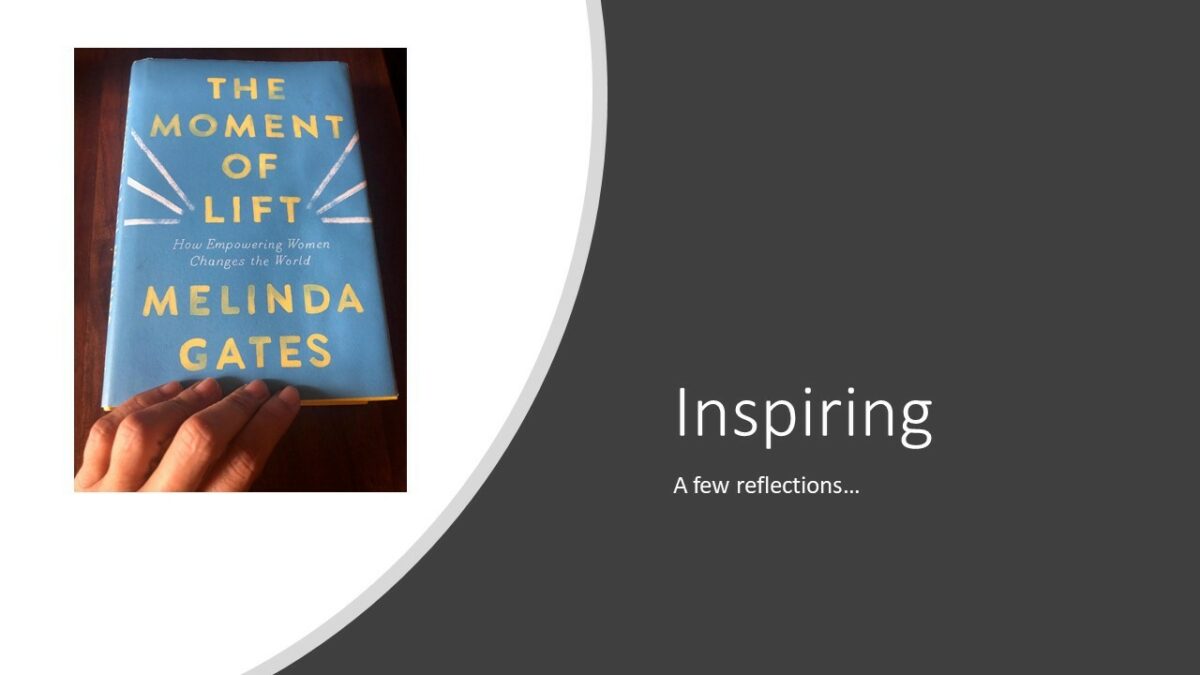Take- aways from “The Moment of Lift”
Just finished reading “The Moment of Lift” and this was one, which touched deeply, perhaps because of the way it evoked emotions in a simple and inspiring narrative. Having been a close champion of a few of these causes in little ways, the many stories from India and Africa rang a bell and a special salute to the many extraordinary people who’ve created magic in the world by “lifting” women and girls everywhere. The spirit of the book lies in the fact that when we invest in a girl or a woman, you’re investing in everyone else. There were innumerable learning moments and wanted to share the top few which I found really deep.

We can look at each issue as a wall or a door. In the hearts and minds of empowered women, “every wall is a door”.
When you send a girl to school, the good deed never dies. Good schools instill in their students an audacious sense of who they are and what they can do.
Anyone can be made to feel like an outsider. The poor are always outsiders. Immigrants are always outsiders. And in almost every society- women can be made to feel like outsiders- even in their own homes. It’s not enough to help outsiders fight their way in- the real triumph will come when we no longer push anyone out.
On empathy…”We have to open up to others. We have to give up the need to be separate and superior”
Mary Maxwell Gates, on the sense of responsibility of the privileged- ” From those to whom much is given, much is expected”.
Hans Rosling’s advice to Melinda ” If you remember one thing I’ve told you, remember you have to go to people on the margins”. What defines margins is people whom the world forgets and nobody serves.
There is a big difference between a loud voice and a strong voice. The loud voice of a man who has no inner life and is a stranger to his own grief is never a voice for justice; it’s a voice for self-interest, dominance, or vengeance. Strong male voices for freedom and dignity come from men like Gandhi, King, and Mandela who mastered their pain, gave up on vengeance, and preached forgiveness.
Poverty is not being able to protect your family. Poverty is not being able to save your children when mothers with more money could. And because the strongest instinct of a mother is to protect her children, poverty is the most disempowering force on earth.
Ultimately moral questions are personal questions. Majorities don’t matter on issues of conscience. No matter what views others may have, I am the one who has to answer for my actions.
Stigma is always an effort to suppress someone’s voice. It forces people to hide in shame. The best way to fight back is to speak up – to say openly the very thing that others stigmatize.
When we come together, we rise. There is no wrong race, religion or gender. We see ourselves in others. We see ourselves “as others”. That is the moment of lift.
